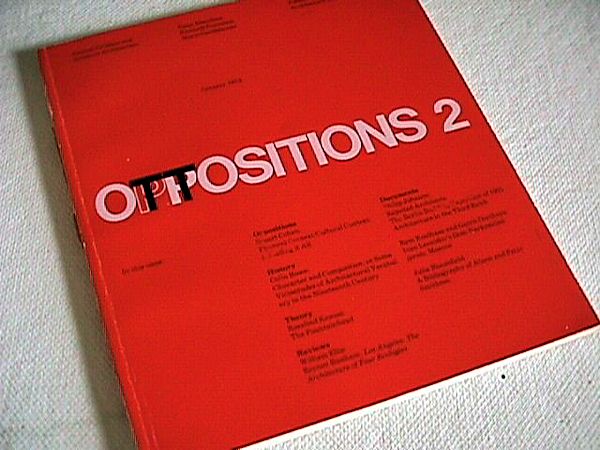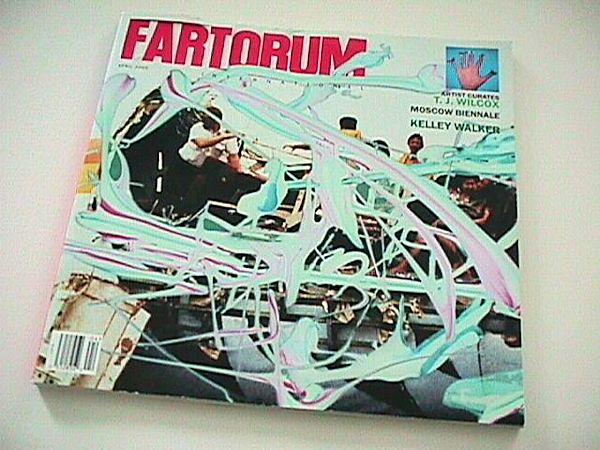2007.04.23 22:58
Featured Discussion: Volume
...just looked up Fayette, MO on google maps.
Spent the summer of 1978 living/working in Perry, MO. Did H.A.B.S. work documenting buildings and towns that are now under Mark Twain Lake. One of the houses I did even turned out to be built on top of an Indian burial site. Some weekends zipped back and forth on back roads to Kansas City, and I think that's why the name Fayette seemed familiar to me. And as to fashion, I got my John Deere cap in Paris.
You don't happen to know Buzzard's Roost? It was my favorite spot in all Missouri.
2007.04.23 20:46
Featured Discussion: Volume
I read some stuff on deterritorialization within 1000 Plats last night--Theorems of deterritorialization in "Year Zero: Faciality" and Theorems of deterritorialization in "1730: Becoming-Intense, Becoming Animal, Becoming Imperceptable..." Can't say that I related to any of it though, but I like the p. 387 quotation above. I'll browse some more tonight, plus read Symphonatic No. 1. Looking forward to more numbers. Already inspiring, might even riff off...
"It turns out that humpback whales riff off each other, remixing one another's songs, and developing trends and fashions in their singing over time." Who told them about composition?!?
"a vector of deterritorialization in perpetual motion." --it just so happens that over the weekend I collected (for a Quondam page) all of Miers Fisher's 1812 journal passages on Redheffer's Perpetual Motion Machine. Miers became quite an advocate. Too bad it turned out to be a hoax because it seems that Miers gave a lot of thought to the design principle, and may have actually been on to the real thing. He even waxed philosophical about the great potential of such a device with regard to labor. (And I get a kick over now living where these journal passages were written--same territory but so not the same.)
2007.04.23 17:08
Featured Discussion: Volume
Firminy church by Le Corbusier
Hurva synagogue by Kahn
composition 1a : the act or action of composing : the formation of a whole especially by different things being put together
To confuse or not to confuse, that is de-territorialization?
The church/synagogue composition came as a result of seeing how the plan of the church fit almost perfectly within the sanctuary(?) of the synagogue. And, since I had a model of both buildings, I just wanted to see the superimposition in 3D. And upon seeing that I thought, "Gosh, that kinda looks like a mosque." Trust me, de-territorialized thinking isn't necessarily brilliant, although for the most part uninhibited.
Anyway, back to Volume....The reporter on the radio just said, "Heavy volume on Passyunk Aveune..." Hey, traffic would make a great theme for a heavy issue. Trafficking in Architecture--I wanna write about stolen goods.
I think Passyunk is an old 'Indian trail'. Wow, Philadelphia's Indian trails, talk about de-territorialization.
| |
2007.04.23 15:41
Featured Discussion: Volume
It seems to make sense that de-territiorialization ultimately registers a re-territorialization, but it is the effect of de-territorialization (on one's thinking) that is the most important aspect here. And I guess you could say that new mode of thinking is what then shapes the new "territory".
I have no idea if this is so, but I wonder if this composition might be an example of de-territorialized architecture.
2007.04.22 19:59
Featured Discussion: Volume
I referred to my stance as an architect as de-territorialized, but not to Quondam.
My de-territorialized stance may be reflected within the content published at Quondam, but Quondam itself doesn't attempt de-territorialization any more than any other virtual place attempts de-territorialization.
If there is anything I learned via de-territorialization and Quondam it's that limits are not worth reaching for.
2007.04.22 13:00
Featured Discussion: Volume
Ah, the reenactment of it all.
2007. 04.21 22:00
...and speaking of random tangents
regarding An American (Wall) in Baghdad:
Subject: Re: city making and city breaking
Date: 1998.12.17
2007.04.21 21:08
Featured Discussion: Volume
Don't tell me you're suggesting Oppositions isn't de-territorialized enough!
2007.04.21 20:07
Featured Discussion: Volume
Nothing's pure, that's a given anywhere. But there's a big difference between dipping one's toe in the water versus taking an all out plunge. I'm not faulting anyone, rather just giving de-territorialization more definition.
2007.04.21 13:22
Featured Discussion: Volume
Look up magazine in a good dictionary.
1 a : a place where goods or supplies are stored
2 a : a place to store ammunition
Bouman states Volume's position well. But the whole "kind of de-territorialized" stance is weak, tepid at best.
As an architect, with no practice, a dormant license, no ties to any institution, no real contact with other architects and very little real contact with other people, yet, via the internet, still operating within the architectural realm and even having some effect (big effect even if the full range from negative to positive is considered), I know all about de-territorialization because, as an architect, de-territory is the only place I am. [An interesting twist in this particular discussion (place) is that Mark Wigley is the only person here that has actually met me, and thus he knows just how de-territorialized I actually am.]
Oddly, de-territorialization is what provided me with an architectural comfort zone.
[note to self: how does bilocation relate to de-territorialization? Is bilocation like a hyper inverted de-territorialization??]
| |
2007.04.20 21:11
Featured Discussion: Volume
 
priceless, of course
| |
2007.04.20 18:27
Featured Discussion: Volume
Because education is today an expensive commodity, and because magazines are at best advertising mediums and because architects are now seeking to commodify their research (abilities), I thought of Leon Krier's "The Consumption of Culture" in Oppositions /14 (1979).
first sentence:
"When the French Revolution ended with the political victory of the bourgeoisie, education, which had been the priviledge of a small class, became compulsory for every member of the new social order.
somewhere in the middle sentence:
"Kitsch must then be identified as the most important cultural phenomenon of the industrial age, as the real Zeitgeist of the machine age.
last sentence:
"In that perspective, the self-destruction of humanity becomes obviously a moment of relief, relief from the urgency, ugliness, and futile agony.
=====
Where/what exactly is the urgency?
Putting the content of all those old magazines online, now that would be a more worthwhile exhibit.

quick, before the deadline.
I think I know why Ernest Hemingway committed suicide.
2007. 04.20 13:56
...and speaking of random tangents
"worst chair" 8 years ago
2007.04.20 13:32
Featured Discussion: Volume
I really dislike the whole "we architects..." mentality. I certainly don't want any other architects to speak for the way I feel/think/design.
Artificial limits that speak more of insecurity and subliminal desires for homogenization, than for any actual solidarity.
Could it be that "nobody has thought of architectural opportunities" within the real diversity of the architectural realm itself?
|